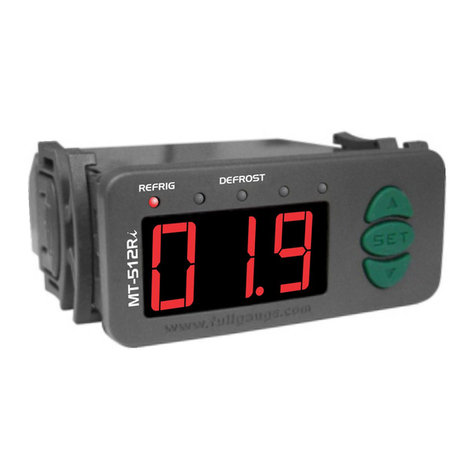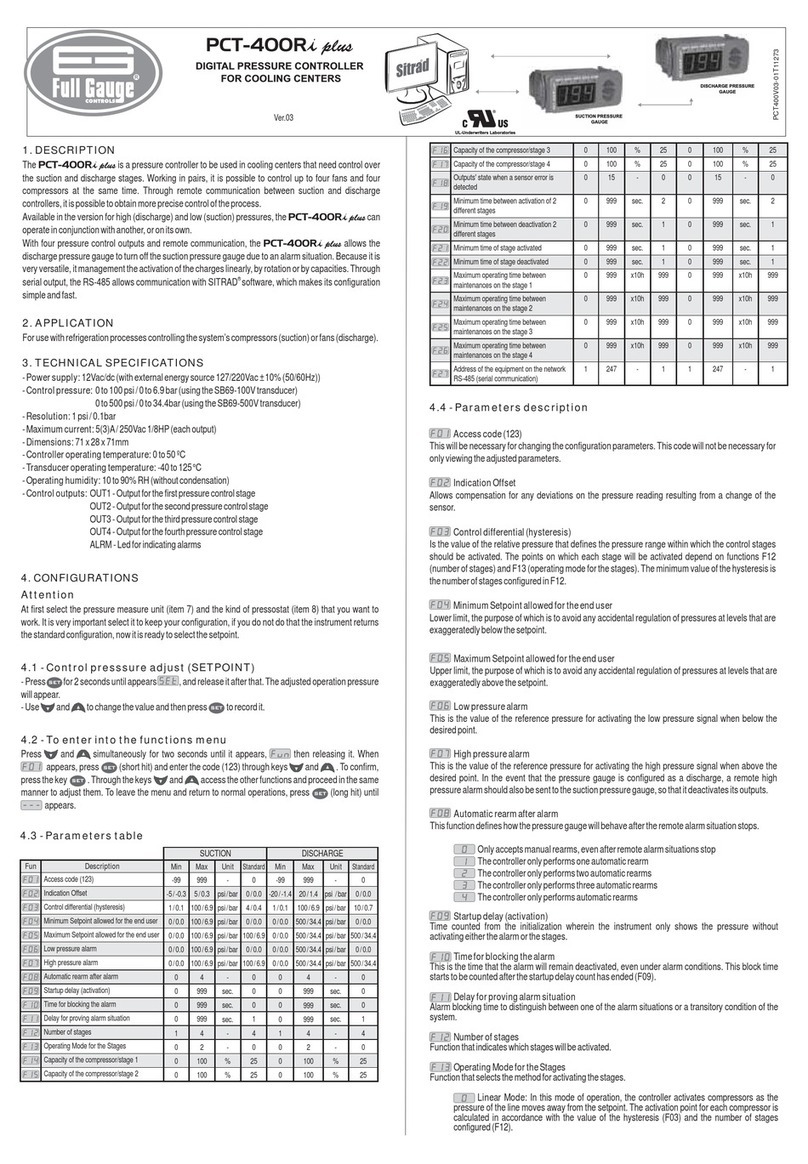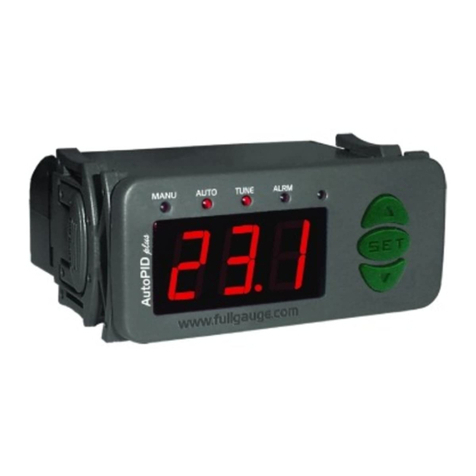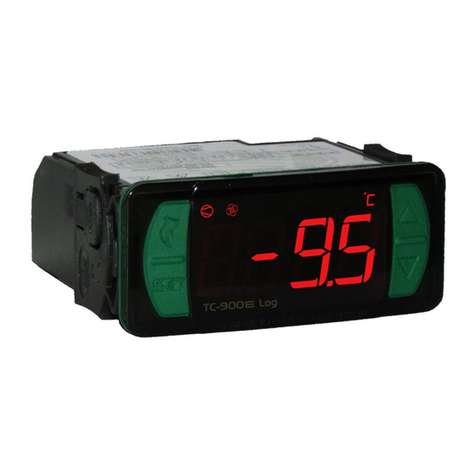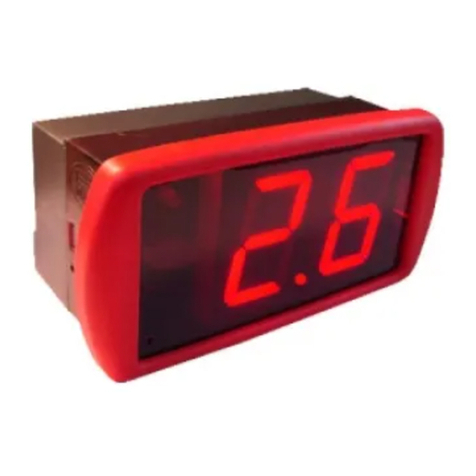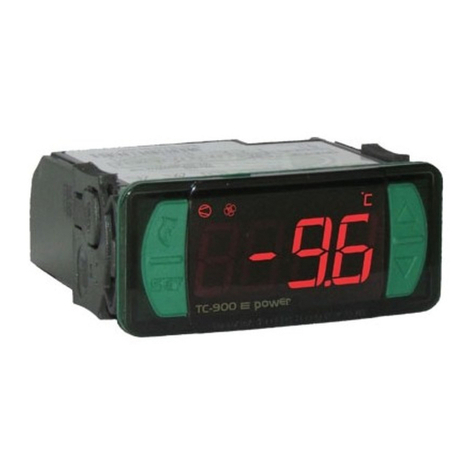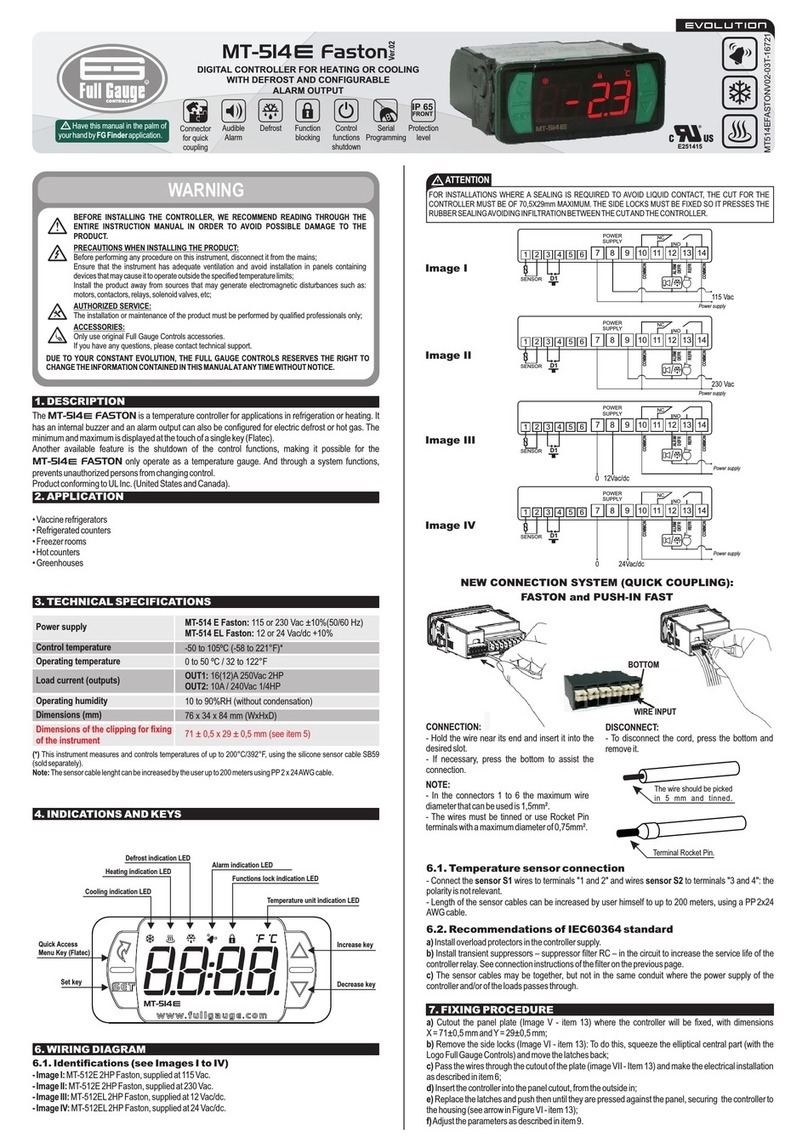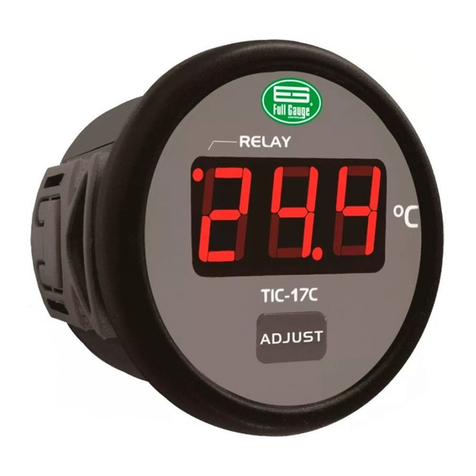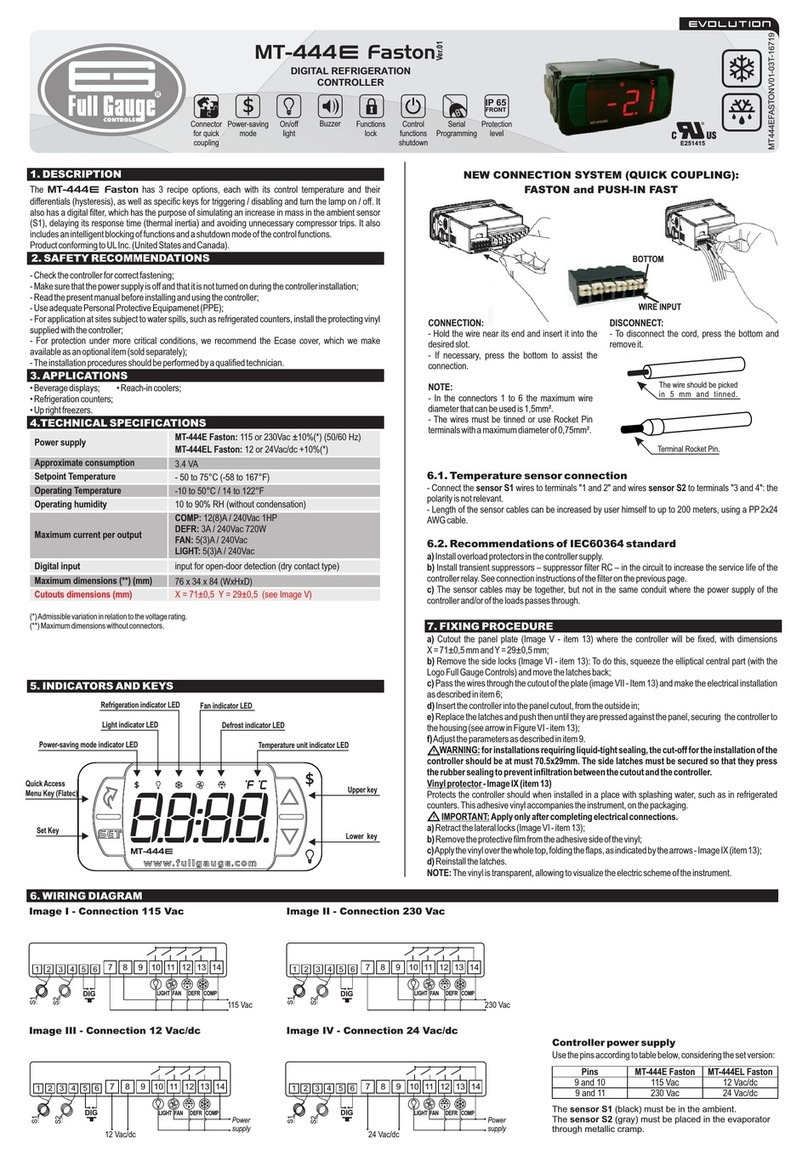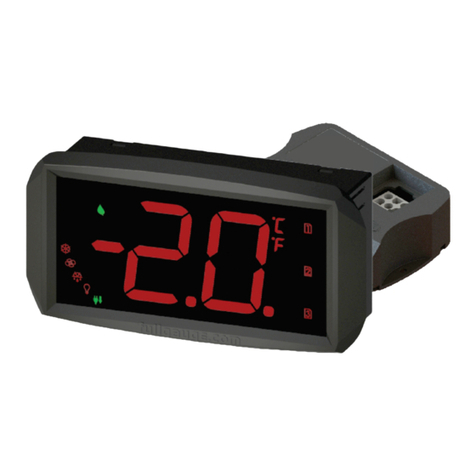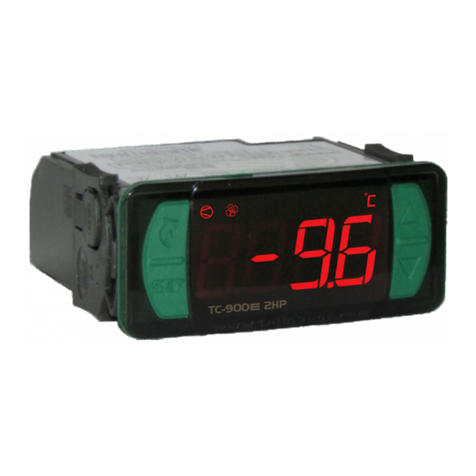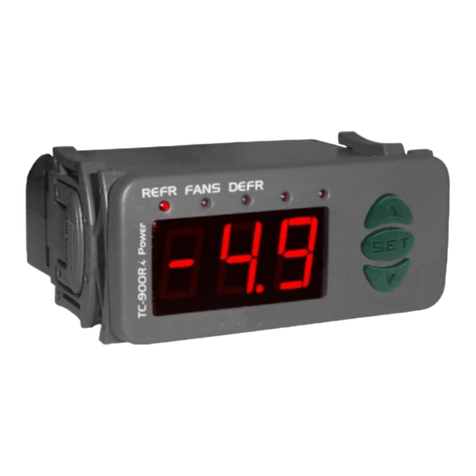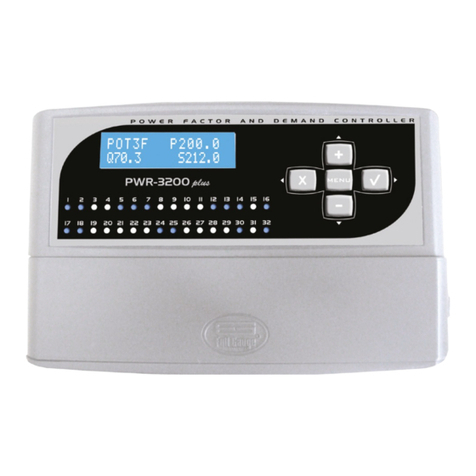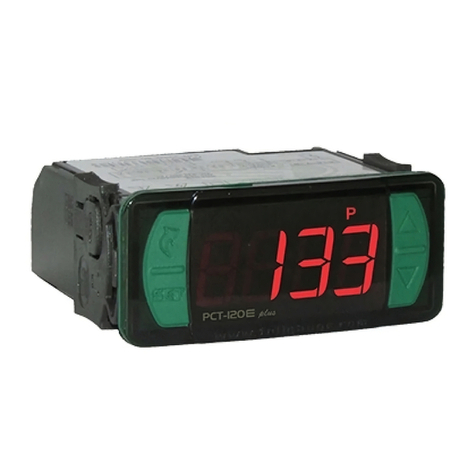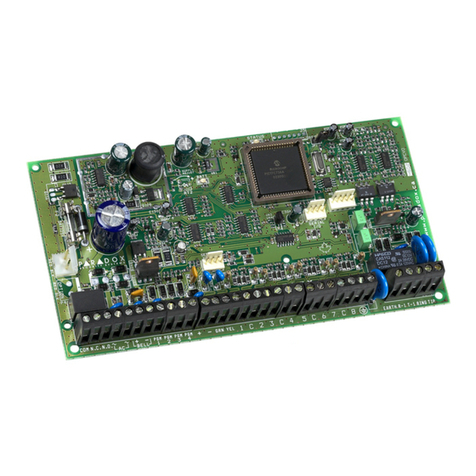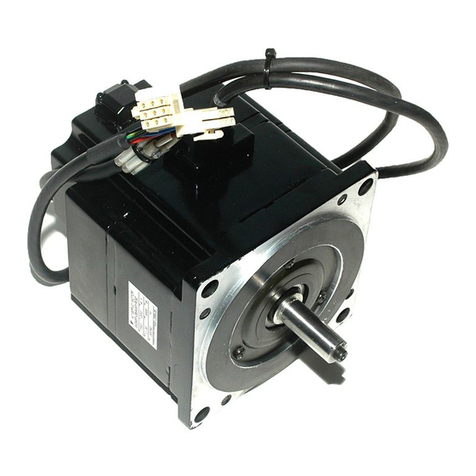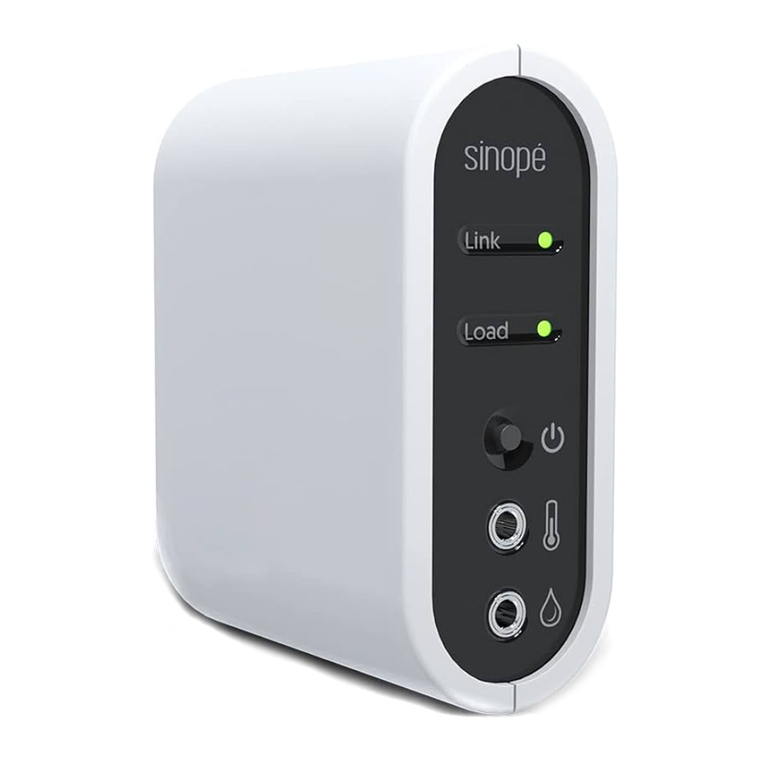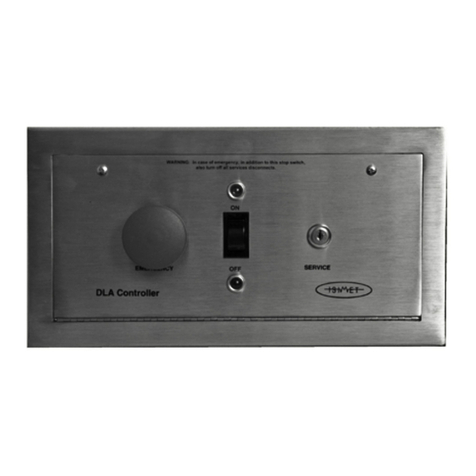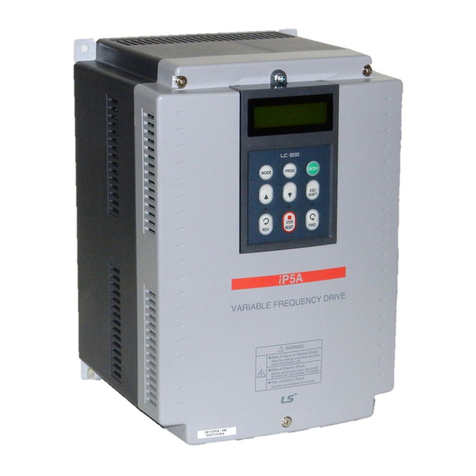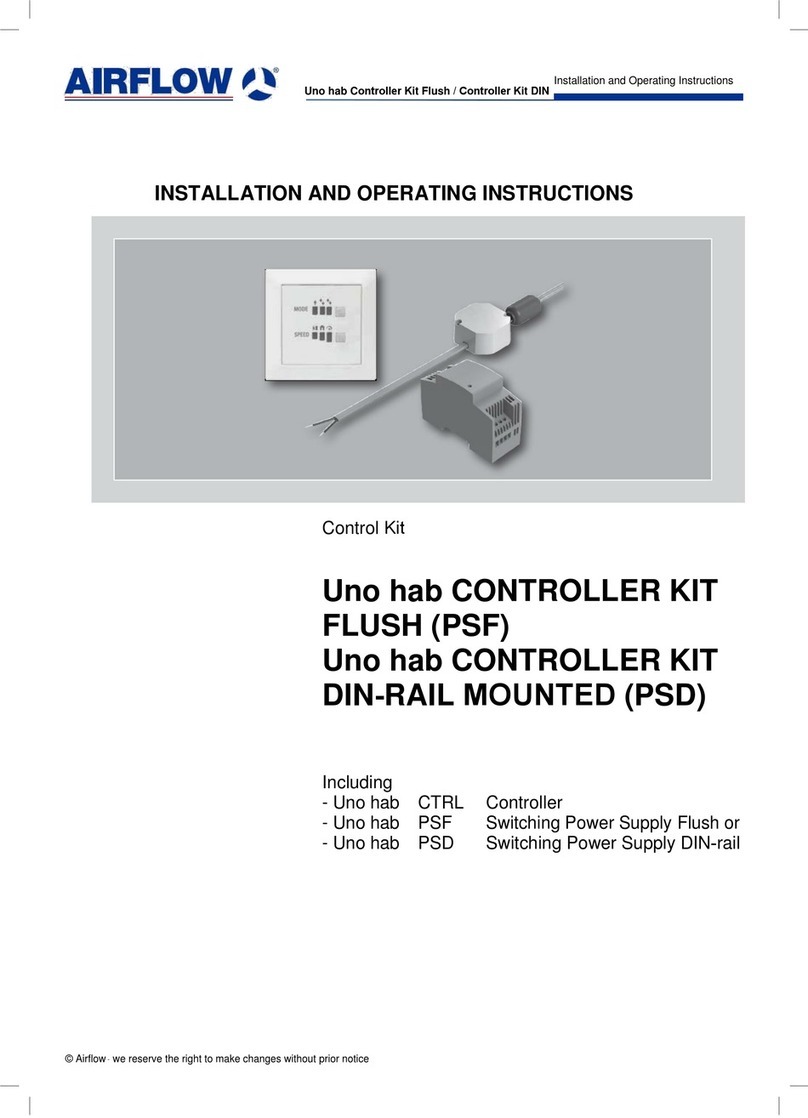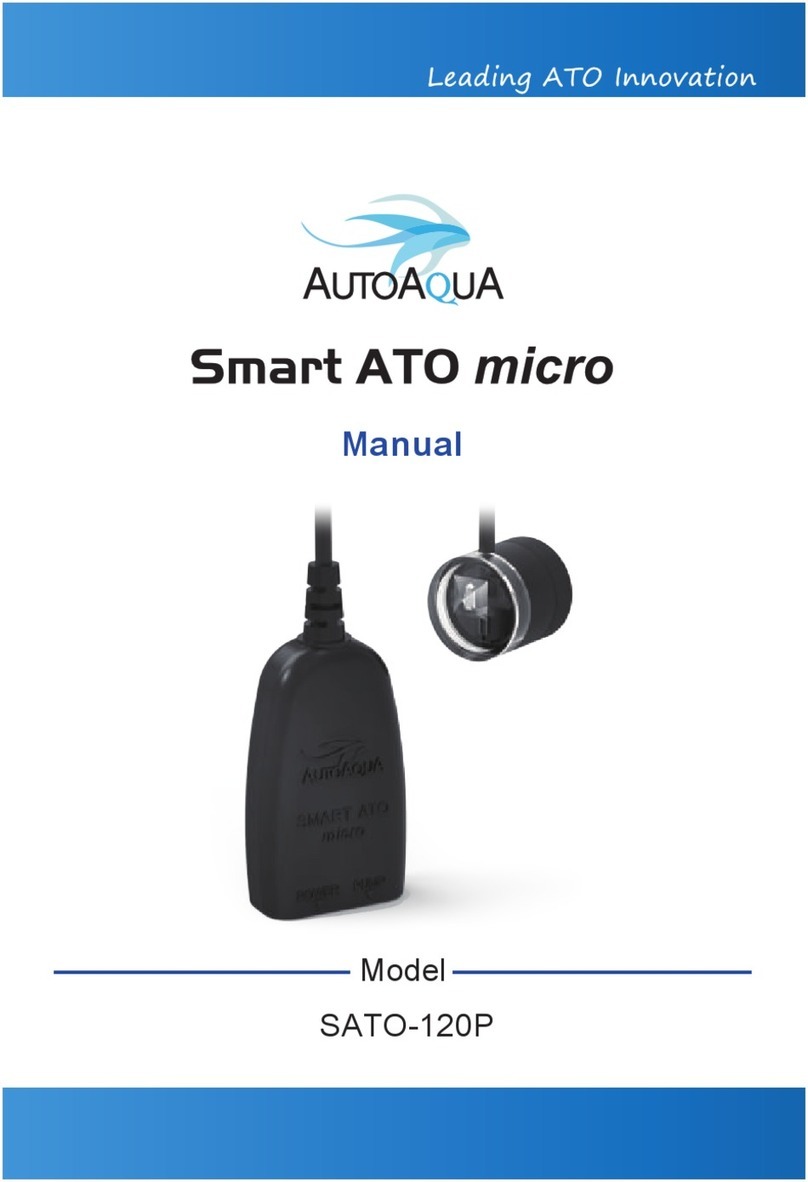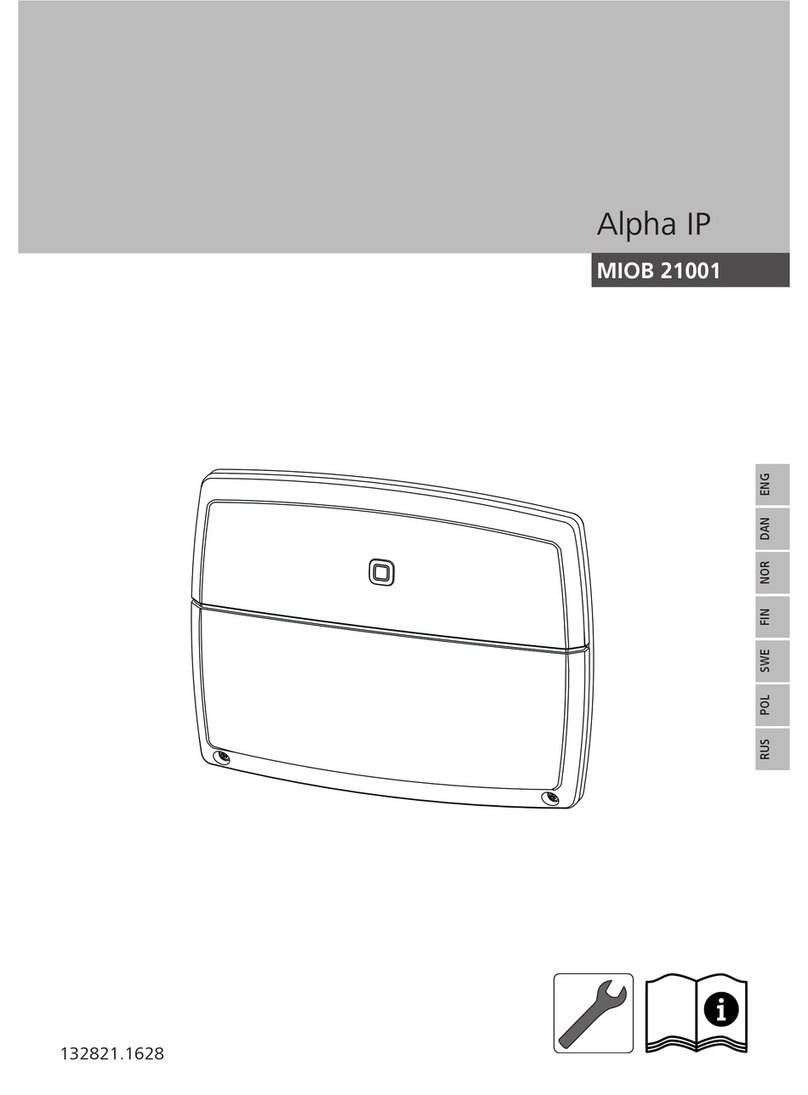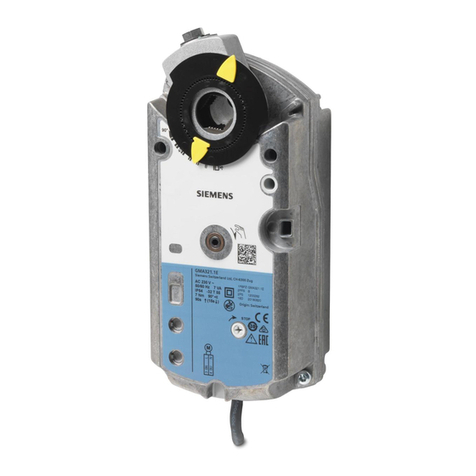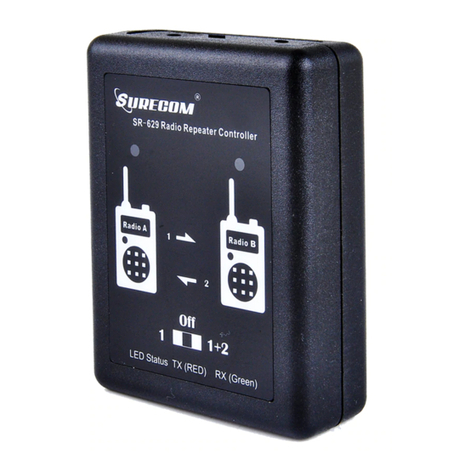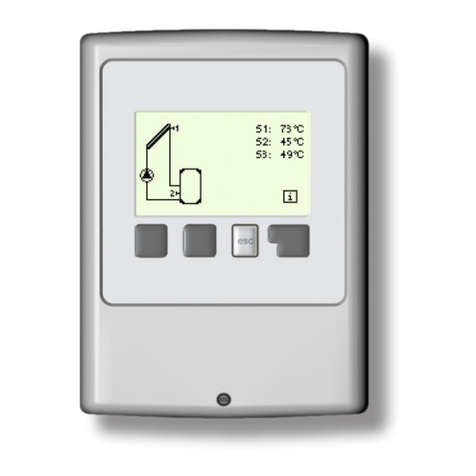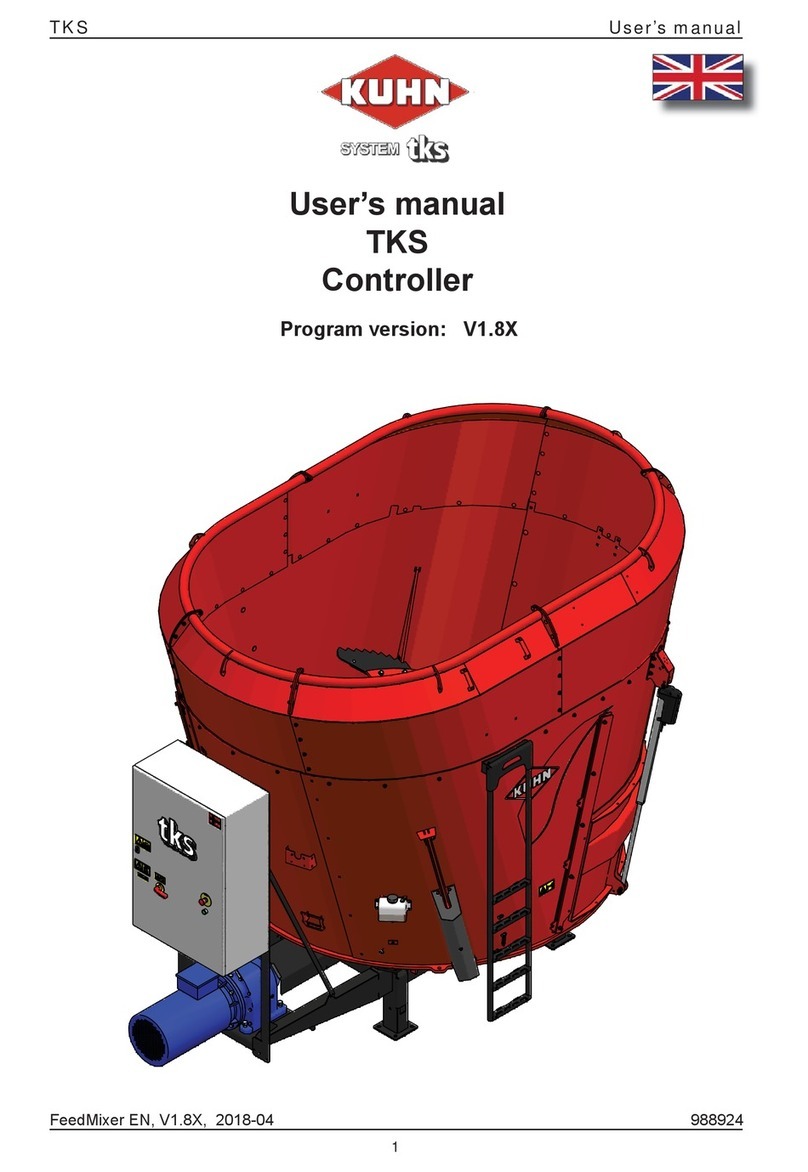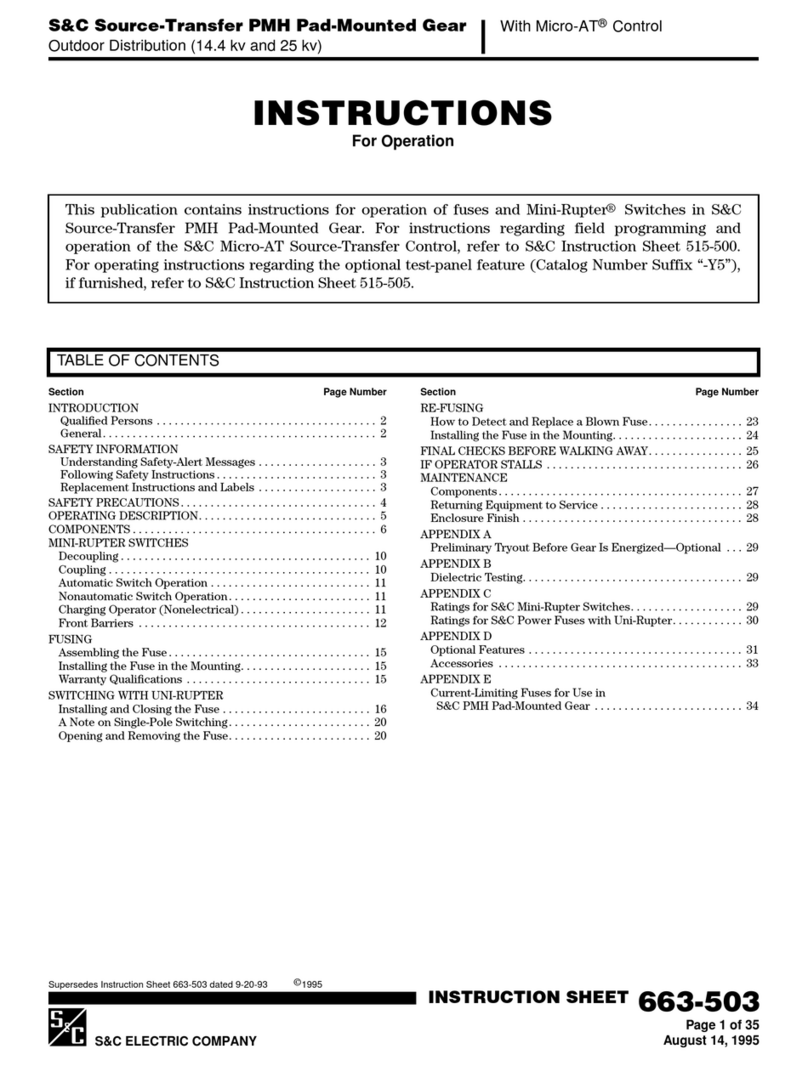
evolution
EasyProg
Ver. 06
PROGRAMMING KEY
EasyProg
PC Controller
1. DESCRIPTION
The is an accessory that has as main function store the parameters of the controllers, load
EasyProg
them and unload them quickly and easily. can help programming a production line, for
EasyProg
instance, by copying the information from a standard controller (creating a standard preset) and then
downloading it to the other controllers without the need for connecting it to a PC.
Through a USB port, the can connect to your PC and modify the parameters for the editor
EasyProg
revenue Sitrad. For communication with the instrument contains an RS-485 and TTL Serial.
Note: ver. 2 or higherSee the controller's manual to check if it is compatible with , before
Easyprog
connecting them.
2. TECHNICAL SPECIFICATIONS
- Power supply: Through the mini USB port or serial TTL
- Operating temperature: 0 to 50ºC (32 to 122ºF)
- Operating humidity: 10 to 90% RH (no condensation)
- Indication: Led display (seven segments) and two multicolor leds.
- Size: 45 X 24 X 87 mm (WxHxD)
3. SIGNALINGCONNECTIONS, KEYS AND
Key START
LED receipt
Display indicator
of chosen recipe
LED sending
Key MODE
Serial TTL connection
RS 485
USB connection to PC
4. FUNCTIONS
The has a led display (seven segments) that shows the number of selected recipe and two
EasyProg
multicolors leds, through which are signaled the following functionality: PC connection, receiving the
parameters, selection of recipes and communication with success or error .
By connecting the leds are lit (magenta when connected to the PC by USB or cyan EasyPro
if connected by Serial TTL).
To select recipes that are sent or received through the serial TTL, you should press the key for 15 MODE
seconds. The leds will pass to yellow indicating it is in menu selection of recipes. To select
the recipe, use the key, pressing briefly until you reach the desired amount of revenue. The START
EasyPro supports store up 9 recipes.
The key to be pressed switches between sending and receiving states, identified MODE for 10 seconds
through the leds .
and
Send parameters to the controller;
Receive parameters from the controller;
and
and
To execute both the sending and receiving commands require pressing the key for 1 second. START
When the key is released, the communication starts and the corresponding led flashes. When finished,
the same led will indicate if the parameter transmission or reception ended successfully or with errors.
5. LOADING AND UNLOADING RECIPES
5.1. Copying a recipe from a controller to EasyProg
1) Connect to the Controller via Serial TTLor RS-485.
EasyProg
2) If the recipe chosen is the number 1, skip to step 3.
To select the desired recipe, press for 15 seconds then release it ( lit - yellow). MODE key
Press the key and select the desired recipe number. Press the key for 15 seconds then START MODE
release it to exit the menu selection of recipes.
3) When connecting to on the controller, the LEDs sending and receive are lit , to
EasyProg
move to the mode receive press the button for 10 seconds.MODE
4) START To start the receipt of recipe press for 1 second.
5) The same LED will flash and, upon completion, will light up green if the communication is successful,
or red if any errors occurred.
Note: When sending or receiving recipes, the indicator will remain off.
EasyProg
5.2. Sending a recipe EasyProg to a controllerfrom a
1) To send the parameters to a controller, a preset must be previously recorded on (from
EasyProg
other controller or using Sitrad 's Preset Editor).
2) Connect to the controller via Serial TTL or RS-485.
EasyProg
3) If the recipe chosen is the number 1, skip to step 4.
To select the desired recipe, press the key for 15 seconds then release it ( MODE lit - yellow).
Press the key and select the number of the desired recipe.START
Press the key for 15 seconds then release it to exit the menu selection of recipes.MODE
4) MODE Press the key until the LED is on (sending).
5) START To start sending the recipe, press the key for 1 second.
6) The same LED will flash and, upon completion, will light up green if the communication is successful,
or red if any errors occurred.
Note: When sending or receiving recipes, the indicator will remain off.
EasyProg
5.3. from a PC for EasyProgSending a recipe
1) Connect to the PC using the mini USB cable.
EasyProg
2) Use Sitrad 's Preset Editor to create or edit a preset for the required controller.
3) Click the file menu, then , and a new window will open.
EasyProg
4) In this new window, click on the menu recipes stored in and choose the desired position.
EasyProg
This position corresponds to the number of recipe. After, click the corresponding arrow to send the
recipe to .
EasyProg
5.4. Upload a recipe from a EasyProg to the PC
1) Connect to the PC using the mini USB cable.
EasyProg
2) Use Sitrad 's Preset editor.
3) Click the file menu, then , and a new window will open.
EasyProg
4) In this new window, click on the menu recipes stored in and choose the desired position.
EasyProg
This position corresponds to the number of recipe. After, click the corresponding arrow to send the
recipe to .
EasyProg
5) Upon closing this window, the parameters saved on will remain on the screen.
EasyProg
and
and
LED STATE COLOR
Connected to PC
Selection of recipes (press to select)START
Error during initialization of memory. Disconnect the cable
and reconnect
On power up when fed by Serial TTL or other source with
USB connection
Sending of parameters (waiting press )START
Sending of parameters during data transmission
Sending of parameters successfully completed
Sending of parameters with error (controller model is
incorrect or the version is not compatible)
Sending of parameters with error (without communication
with the controller)
Receiving of parameters (waiting press )START
Receiving of parameters during data transmission
Receiving of parameters successfully completed
Receipt of parameters error (controller model is incorrect
or the version is not compatible)
Receipt of parameters error (without communication with
the controller)
magenta
red
yellow
cyan
cyan
cyan
green
red
red
cyan
cyan
green
red
red
ON
flashing
ON
ON
ON
flashing
ON
ON
flashing
ON
flashing
ON
ON
flashing
and
and
and
and
DESCRIPTION
